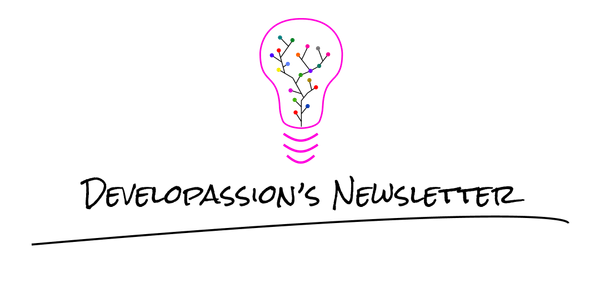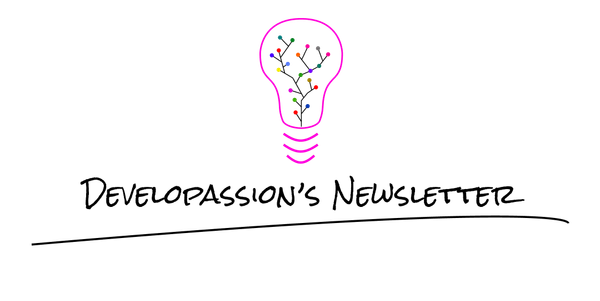How To Free Your Mind and Enhance Your Memory: Write To Forget, Not To Remember
Write more. Free your mind, and reduce cognitive load. Learn why writing to forget can help you remember what truly matters. Explore the benefits and techniques of building a personal knowledge base.

In this article, I discuss the reasons that push me to keep writing and taking notes. I go back to where it all started, the benefits I get out of it, and why I think you should probably also write to forget.
Introduction
Writing has been part of my daily routine for many years. It all started when I was a kid.
At first, it was all about typing. I used an old typewriter that belonged to my mother, and loved the sounds it made. It brought joy to my soul to think about a sentence, and use that machine to make it appear on a sheet of paper. It felt like bringing something intangible into the material world. Turning the imaginary into reality. I regularly looked at the clouds, searching for familiar shapes, and kept thinking about how powerful imagination was. The concept of reality was fascinating to me. I loved how thoughts could form in my mind, becoming "real", while they didn't exist an instant before. Writing made that even more powerful. Going from nothing, to something. Creation!
I kept writing ever since. Mostly, words addressed to myself. Words to imagine, help me make sense of the world, explore and remember thoughts, ideas, lessons, ... I wanted to write stories, keep track of what was happening around me and also create some kind of knowledge base for myself. In a sense, I wanted to help myself grow, and keep traces of my existence.
I was journaling all along. With my own style, without much thinking about the process itself. I was just enjoying the pleasure of the activity. Since then, I've spent more time thinking about the reasons that pushed me to write, reflected on the activity itself, and evolved my process.
Over time, I realized that the more I was writing, the calmer my mind was. It helped me feel much more Zen.

Writing to forget, not to remember
One important thing that I've realized about my writing habit is that allowing my brain to forget things is one of the big benefits I get. I love being forgetful, but I want to be confident I'll always remember what really matters. And writing is the perfect solution for that.
Whenever I learn or discover something that I find interesting, intriguing and/or useful, I like to capture it in a way that will help my future self benefit from it again and again. I could try to memorize all that information, but it's rarely necessary or useful. Most of the time, simply keeping track of the idea/concept/possibility itself is enough.
Capturing information like this enables me to forget a whole lot of things, without missing out, and without preventing my future self from benefiting from whatever I discovered. Search engines can provide the same benefit (i.e., getting back to useful information), but only if you can provide them with enough input to find what you're after. The same goes with AI. Those cues need to come from somewhere. And without a Personal Knowledge Management system, that place can only be your memory. As I've argued many times, it's clearly not a reliable storage mechanism for important information.
Of course you need a system (however simple or complex) to structure and organize that information. But you also need to capture the right cues. Writing to forget is a powerful way to ensure that you capture the right information and maximize your chances to find the information you need when you will need it.

The benefits
If you write the right things instead of trying to memorize those, then you can:
- Forget intentionally, and feel good about it: By writing down your thoughts and ideas, you free up mental space, reducing stress and anxiety about remembering everything.
- Remove some noise in your head, and reduce your cognitive load
- Fight against the Zeigarnik Effect, and close open loops faster: By writing down unfinished tasks and ideas, you can reduce the mental strain of carrying incomplete thoughts.
- Gain clarity of thought and focus more easily: The less you have in mind, the more you can focus on the tasks at hand. In addition, writing also helps organize your thoughts, making it easier to prioritize and concentrate on what truly matters.
- Remember forever (assuming you have a system to find what you need when you need it): A well-organized system ensures that important information is always accessible when needed.
- Connect ideas, and explore those more deeply over time: Writing down your thoughts allows you to revisit and expand on them, fostering deeper understanding and creativity.
- Build a knowledge base with compounding value: Over time, your writings become a rich repository of insights and knowledge, growing in value as you add to it.
- Improve your problem-solving and decision-making skills: Writing forces you to express your thoughts clearly, which has a direct impact on problem-solving and decision-making.
- Enhance creativity: Writing will help you think more creatively.
- ...
There's actually a lot more to consider, but let's keep it at that, for now.

Conclusion
Free your mind of all the problems, worries, tasks, ideas, and nagging thoughts. Remove all that noise from your head. Write more. Write to forget intentionally, and remember forever.
Use a Tool for Thought. Capture what resonates, what matters, what has value, what has meaning. Then forget it all, until you need it again.
About Sébastien
I am Sébastien Dubois. You can follow me on X 🐦 and on BlueSky 🦋.
I am an author, founder, and coach. I write books and articles about Knowledge Work, Personal Knowledge Management, Note-taking, Lifelong Learning, Personal Organization, and Zen Productivity. I also craft lovely digital products . You can learn more about my projects here.
If you want to follow my work, then become a member.
Ready to get to the next level?
To embark on your Knowledge Management journey, consider investing in resources that will equip you with the tools and strategies you need. Check out the Obsidian Starter Kit and the accompanying video course. It will give you a rock-solid starting point for your note-taking and Knowledge Management efforts.
If you want to take a more holistic approach, then the Knowledge Worker Kit is for you. It covers PKM, but expands into productivity, personal organization, project/task management, and more:
If you are in a hurry, then do not hesitate to book a coaching session with me:





